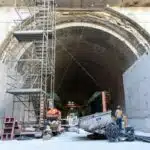Building a garage can be an exciting and rewarding project for homeowners. Not only does it provide extra storage space, but it can also increase the value of the property. However, before embarking on this endeavor, it is important to consider the cost per square foot of building a garage.
As a building cost analyst, I have analyzed various factors that determine the cost of constructing a garage. These factors include the size of the garage, materials used, labor costs, location, and any additional features such as plumbing or electricity. By understanding these variables and their impact on cost per square foot, homeowners can make informed decisions about their garage construction project and ensure that they stay within budget while still achieving their desired outcome.
Understanding The Basics Of Garage Construction
Garage construction is a complex process that involves various stages, from design to final construction. Garage design is an essential aspect of the entire construction process since it determines the functionality and aesthetic appeal of the garage. Before embarking on any garage construction project, homeowners must first obtain building permits from local authorities. Building permits are necessary because they ensure that the garage meets safety standards and zoning regulations.
Garage design is an intricate process that requires careful planning and consideration of several factors. These include the size and shape of the garage, its intended use, and the materials to be used in its construction. A well-designed garage maximizes space utilization while ensuring that it meets all safety requirements. Moreover, a well-designed garage enhances the overall value of a property.
When planning for a new garage construction project, obtaining building permits should be a top priority. Building permits are necessary since they help ensure that the structure conforms to local laws and regulations. Any deviation from these regulations may result in legal fines or even demolition of the structure. Additionally, building permits give homeowners peace of mind knowing that their investment is protected by law.
Factors affecting garage construction costs vary widely depending on individual needs and preferences. Homeowners must consider factors such as location, size, materials used in construction, labor costs, and other miscellaneous expenses when budgeting for their project. In this next section, we will explore these factors in-depth so that homeowners can make informed decisions when embarking on their garage-building journey.
Factors Affecting Garage Construction Costs
Understanding the Basics of Garage Construction has given us insight into the fundamental aspects of building a garage. Now, let us examine the factors that affect the cost of constructing a garage. The most crucial factor that determines the cost per square foot of building a garage is its size. A larger garage will require more materials and labor, thus increasing the overall cost.
Building materials also play an essential role in determining the cost of constructing a garage. The type and quality of materials used for walls, roofing, flooring, doors, and windows significantly impact the total construction cost. For example, using premium-grade wood for framing and high-quality insulation can increase costs but may provide long-term benefits in terms of energy efficiency and durability.
Geographic location and building codes are other significant factors affecting garage construction costs. Different regions have varying labor costs, material prices, and building regulations that influence construction expenses. Building codes dictate specific requirements for structural strength, safety features such as fire resistance, electrical wiring standards, and drainage systems that add to overall expenses.
Garage size impacts construction costs significantly; however, there are other critical factors to consider when budgeting for your project. Building materials’ quality and type determine energy efficiency and long-term durability while geographic location and building codes dictate necessary requirements for compliance with local laws. In our next section about ‘Factors Affecting Garage Construction Costs,’ we will delve deeper into these considerations to help you make informed decisions when planning your next garage project.
Size Of The Garage
Size considerations are crucial when planning the construction of a garage. The size of the garage should be determined by several factors, including the number and size of vehicles it will house, the amount of storage space required, and any additional uses such as a workshop or hobby area. Building a larger garage may seem like an attractive option, but it is important to keep in mind that bigger garages come with higher building costs.
Maximizing storage space is another key factor to consider when designing a garage. This can be achieved by incorporating features such as built-in shelving, cabinets, and overhead storage systems. Additionally, choosing the right layout can also help maximize available space. For instance, positioning vehicles in a diagonal or angled manner can help create more room for storage along the walls.
When considering size and storage options for your garage, it is important to strike a balance between functionality and cost-effectiveness. Building an oversized garage with excessive amounts of storage may not be financially feasible for everyone. However, careful planning and consideration of your specific needs can help you find the sweet spot that maximizes both utility and affordability.
Moving on to the next step in building a garage involves selecting appropriate materials for construction. The materials used will have a significant impact on both the appearance and durability of your garage. Considerations such as weather resistance and maintenance requirements should also be factored into material selection. By choosing materials wisely, you can ensure that your garage is both functional and visually appealing for years to come.
Materials Used In Garage Construction
What materials are used in garage construction, and what are the most cost-effective options? When it comes to constructing a garage, there are several materials that can be used. Some of these materials include wood framing, concrete blocks, steel beams, and precast concrete panels. Each material has its own benefits and drawbacks, as well as varying costs.
One cost-effective option for garage construction is using wood framing. While not as durable as other materials, wood framing is relatively easy to work with and is less expensive than steel or concrete options. Another cost-effective option is using precast concrete panels. These panels are made off-site and can be quickly installed on-site, reducing labor costs.
Additionally, choosing energy-efficient materials can also save money in the long run by reducing heating and cooling costs. This includes insulation for walls and roofing materials that reflect sunlight away from the structure. Ultimately, the choice of materials will depend on factors such as budget, climate conditions, and personal preferences.
When considering garage construction materials, it’s important to weigh the benefits of each option against their respective costs. By prioritizing cost-effectiveness without compromising on quality or durability, homeowners can make informed decisions about which materials to use in their garage project. In the next section we will explore another important aspect of building a garage: labor costs.
Labor Costs For Garage Construction
- When constructing a garage, one of the most significant cost factors is labor.
- Hiring experienced professionals to build a garage can help ensure a quality outcome, but the labor rate may be higher than doing the job on a DIY basis.
- The type of labor required, such as framing or masonry, can have a significant impact on the overall cost of the project.
- Different regions may have different labor rates, so it is important to research the availability and cost of local labor when estimating the cost of garage construction.
Hiring Professionals
Cost per square foot of building a garage is a crucial factor to consider when constructing a garage. One of the significant expenses that contribute to the total cost is labor costs. Homeowners can choose between DIY projects and hiring professionals for their garage construction project. While DIY projects may seem like an excellent way to save money, it comes with its risks and downsides.
Hiring professionals for your garage construction project has numerous benefits. The primary advantage of hiring experts is their experience and expertise in the field. They have the necessary skills, knowledge, and equipment required to construct a high-quality garage that meets your specific needs. Additionally, they can guide you through the entire process, from planning to completion, ensuring that everything runs smoothly.
However, hiring inexperienced contractors can lead to disastrous results. Not only will this increase the chances of accidents happening on-site, but it also puts your investment at risk since inexperienced contractors may not be able to deliver quality workmanship effectively. Therefore, before hiring anyone, ensure that they have all the necessary licenses and certifications required by local authorities.
In conclusion, while DIY projects may seem like an excellent way to save money on labor costs for your garage construction project, it comes with its risks and downsides. Hiring professionals may be more expensive than a DIY project initially; however, it offers numerous benefits such as experience and expertise in the field. By weighing both options’ pros and cons carefully, homeowners can make informed decisions about which option best suits their needs while keeping within budget constraints.
Labor Rates
When it comes to constructing a garage, labor costs are a significant expense that homeowners must consider. The cost of labor varies depending on the region and local market conditions. A comparison of regional labor rates is critical in determining which contractors offer the most affordable rates without compromising the quality of workmanship. For instance, hiring contractors from areas with lower labor rates can help save on expenses for homeowners.
However, one factor that may significantly impact labor costs is shortages in skilled labor. In recent years, many regions have experienced a shortage of construction workers due to various factors such as an aging workforce and low interest among younger generations to take up careers in construction. This has led to increased competition for skilled workers and resulted in higher wages for construction professionals. As such, homeowners should expect to pay higher prices for their garage construction project due to these circumstances.
Overall, when considering labor costs for garage construction projects, homeowners should weigh the benefits and drawbacks of hiring professionals versus DIY projects carefully. While hiring experienced professionals offers several advantages such as quality workmanship and guidance throughout the entire process, it can be more expensive than taking on a DIY project. Additionally, comparing regional labor rates and understanding how labor shortages may impact costs can help homeowners make informed decisions about their garage construction project while staying within budget constraints.
Location And Building Codes
Location considerations and building codes impact the cost per square foot of building a garage. Location is one of the primary factors that determine the cost, as it influences the materials used, labor costs, and permits required. For instance, building a garage in an urban area may require additional permits and inspections than in rural areas. Moreover, the type of soil and terrain in which the garage will be built affects the foundation type required.
Building codes impact the cost per square foot by dictating minimum requirements for construction standards, safety features, and environmental regulations. Building codes vary from state to state and even within different municipalities, so it is crucial to research and adhere to local codes when building a garage. Failure to follow these codes can result in fines or even legal action against homeowners. Additionally, building codes change over time; hence it’s essential to ensure compliance with current regulations before starting any project.
In conclusion, location considerations and adherence to local building codes play a crucial role in determining the cost per square foot of constructing a garage. Homeowners must consider these factors when planning their garage construction project to avoid unexpected expenses or legal issues down the line. In the subsequent section about additional features and amenities, we will explore other essential factors that influence garage construction costs further.
Additional Features And Amenities
As if the cost of building a garage isn’t steep enough, homeowners are often met with additional expenses for various features and amenities. It’s almost as if architects and contractors think that adding smart technology or energy efficiency measures will magically make the construction process easier and cheaper. However, this is far from the truth.
One popular feature that homeowners may consider is smart technology integration. This can include things like automated lighting, temperature control, and even security systems. While it may seem like a great idea to have a completely connected garage, the reality is that these features can add significant expenses to the overall project cost. Not only do you need to purchase the actual devices, but you’ll also need to hire an electrician to install them properly.
Another feature that seems to be all the rage these days is energy efficiency. With rising utility costs and increasing concerns about environmental impact, it’s no wonder that homeowners are seeking ways to reduce their energy usage. Unfortunately, implementing energy-efficient features during garage construction can be quite expensive. From insulated walls and ceilings to high-efficiency windows and doors, there are many components that must be considered when trying to achieve optimal efficiency.
When planning for your garage construction project, it’s important to weigh the pros and cons of incorporating additional features and amenities such as smart technology or energy efficiency measures. While these upgrades may improve functionality or sustainability in the long run, they will undoubtedly increase your upfront costs significantly. As we move forward into discussing average cost per square foot for garage construction, keep in mind how these extras could impact your budget.
Average Cost Per Square Foot For Garage Construction
With additional features and amenities, the cost of building a garage can quickly escalate. As a building cost analyst, it is imperative to consider the size of the garage before adding any extra features. The larger the garage, the more materials will be required, and this will affect the overall cost of construction.
Another factor that contributes to the cost of building a garage is construction material. The most common materials used in constructing garages are wood, metal, and concrete. Wood is the cheapest option but requires regular maintenance to prevent rotting and insect infestation. Metals such as steel or aluminum provide durability and require less upkeep than wood but are more expensive. Concrete is the most durable option but also comes with a higher price tag due to its strength and longevity.
To accurately calculate the total cost of your garage project, you must take into account various factors such as garage size, construction materials, labor costs, permits fees, and any additional features or amenities you wish to add. By carefully considering each aspect of your project before starting construction, you can ensure that you stay within budget without sacrificing quality or functionality. With proper planning and preparation, you can have a beautiful and functional garage that meets all your needs at a reasonable price point without breaking the bank.
Calculating The Total Cost Of Your Garage Project
Factoring in Labor Costs requires an evaluation of all associated costs, including wages, benefits, and associated taxes. Estimating Material Costs involves research of quality and quantity of materials needed, as well as delivery costs. Assessing Building Permits requires an understanding of the local regulations and any associated fees. Accounting for Construction Equipment requires an understanding of the equipment needed and any associated rental fees.
Factoring In Labor Costs
When calculating the total cost of your garage project, factoring in labor costs is a crucial step. Labor costs can make up a significant portion of the total cost, and ignoring them could lead to unexpected expenses. The first step in estimating labor costs is comparing prices from different contractors. Obtaining quotes from multiple contractors allows you to compare rates and choose the one that fits your budget.
Once you have chosen a contractor, negotiating rates can help reduce labor costs further. Some contractors may be willing to lower their rates if you agree to specific terms or timelines for completing the project. It’s essential to establish clear expectations upfront to avoid any miscommunication or misunderstandings later on.
As with any construction project, unexpected issues may arise that could increase labor costs beyond what was originally estimated. To mitigate this risk, it’s essential to work with an experienced contractor who understands how to manage unforeseen circumstances effectively. By factoring in labor costs and taking steps to manage them effectively, you can ensure that your garage project stays within budget and meets your expectations without any surprises along the way.
Estimating Material Costs
After factoring in labor costs, the next crucial step when calculating the total cost of your garage project is estimating material costs. Accurately estimating material costs is essential to avoid unexpected expenses and ensure that your garage project stays within budget. To estimate material costs, you need to calculate the dimensions of your garage accurately and select materials that fit both your budget and your preferences.
Calculating dimensions involves measuring the length, width, and height of your garage. You also need to take into account any additional features such as windows or doors. Once you have calculated the dimensions, you can determine how much material you will need for each component of your garage project. Selecting materials involves choosing materials for walls, roof, flooring, insulation, wiring and fixtures. You should compare prices from different suppliers before making any purchases.
Once you have determined the amount of material needed for each component of your garage project and selected the appropriate materials based on price and quality, you can estimate material costs accurately. Keep in mind that unexpected issues may arise during construction that could increase material costs beyond what was originally estimated. To mitigate this risk, it’s vital to work with an experienced contractor who understands how to manage unforeseen circumstances effectively. By factoring in both labor and material costs and taking steps to manage them effectively, you can ensure that your garage project stays within budget and meets your expectations without any surprises along the way.
Budgeting For Garage Construction
As a building cost analyst, it is important to consider the budgeting for garage construction. The cost per square foot of building a garage can vary depending on several factors including garage design and building materials. Having a solid understanding of these factors can help guide the budgeting process.
Firstly, garage design plays a significant role in determining the cost per square foot. A basic single-car garage typically costs less than a larger, multi-car or custom-designed garage. Additionally, adding extra features such as windows or an automatic door opener can increase the overall cost. It is important to carefully consider what features are necessary versus desired when planning the budget for garage construction.
Secondly, building materials also impact the cost per square foot of constructing a garage. The materials used for walls, roof, foundation and flooring all contribute to the final cost. For example, using high-end finishes like brick or stone will drive up costs compared to more affordable options like vinyl siding or wood paneling. Choosing durable materials that are resistant to weather damage and wear-and-tear can provide long-term savings by reducing repair and maintenance costs.
In summary, careful consideration of both garage design and building materials is crucial when budgeting for garage construction. By keeping these factors in mind and making informed decisions based on needs versus wants, individuals can ensure their project stays within their desired budget range while still achieving their desired outcome. Next we will explore financing options for those that need assistance with covering the costs of their new garage project.
Financing Options For Garage Construction
Garage financing is an important aspect of garage construction that requires adequate planning and budgeting. Depending on the size, design, and location of the garage, financing options may vary. It is important to consider both short-term and long-term financing options before embarking on any garage construction project.
One of the most common financing options for garage construction is a loan from a financial institution. Loans are available from banks, credit unions, and other lending institutions at varying interest rates and repayment terms. Before taking out a loan, it is important to shop around for the best rates and terms that fit your budget. Additionally, you should ensure that you have a solid plan in place for repaying the loan in order to avoid defaulting on your payments.
Another option for financing garage construction is through home equity loans or lines of credit. These loans allow homeowners to borrow against the equity they have built up in their homes. Home equity loans typically have lower interest rates than traditional bank loans but require collateral in the form of your home’s equity. It is important to carefully consider all aspects of taking out a home equity loan before making any commitments.
In order to proceed with garage construction, obtaining permits and licenses is an essential step that cannot be overlooked. The process involves obtaining various permits from local government agencies such as building permits, electrical permits, plumbing permits, and mechanical permits. Additionally, it may be necessary to obtain zoning variances or special use permits depending on the location of your property. Careful consideration must be given to these requirements in order to avoid costly delays or legal issues down the road.
Obtaining Permits And Licenses For Garage Construction
Now that we have discussed financing options for your garage construction project, it’s time to move on to the next step – obtaining permits and licenses. Before you begin constructing your garage, you need to ensure that you are complying with all the legal requirements. The permitting process can be complex and time-consuming, but it is crucial to follow proper procedures to avoid potential legal issues.
To start the permitting process, you will need to obtain a building permit from your local government authority. This involves submitting detailed plans and specifications of the proposed garage construction project along with paying a fee. In addition to building permits, you may also require other permits such as electrical, plumbing or mechanical permits depending on the complexity of your garage design.
Legal requirements for permits vary from state to state and even between local authorities within states. It is important to research and understand what specific requirements apply in your area before beginning your construction project. Failure to comply with legal requirements can result in fines, penalties or even having your garage demolished by authorities.
Next up: finding the right contractor for your garage project. A good contractor can help guide you through the permitting process and ensure that all legal requirements are met before starting construction. They can also provide advice on cost-saving measures and recommend materials that fit within your budget while still meeting your needs for a functional and aesthetically pleasing garage.
Finding The Right Contractor For Your Garage Project
When it comes to building a garage, finding the right contractor can make all the difference. A good contractor can provide you with quality workmanship and ensure that your garage is built to last. On the other hand, a bad contractor can turn your dream into a nightmare.
Choosing materials for your garage project is an important decision that should not be taken lightly. The type and quality of materials used will directly impact the cost of building your garage, as well as its durability and overall appearance. Negotiating prices with contractors is also crucial in ensuring that you get the best value for your money.
To find the right contractor for your garage project, it’s important to do your research. Start by asking friends and family for recommendations or looking online for reviews of local contractors. Once you have a list of potential contractors, take the time to interview each one and ask for references from previous clients.
Remember, building a garage is an investment in your property and should be treated as such. By choosing the right contractor and materials, negotiating prices, and doing thorough research, you can ensure that your garage is built to last and adds value to your home.
As you move forward with planning your garage construction project, keep in mind that there are many ways to save money without sacrificing quality. In our next section on “Tips for Saving Money on Garage Construction,” we’ll explore some practical strategies for keeping costs down while still achieving a high-quality build.
Tips For Saving Money On Garage Construction
As a building cost analyst, I understand that constructing a garage can be a costly endeavor. However, there are ways to save money on garage construction without compromising the quality of the structure. One option is to consider DIY options. If you have experience with building projects or are willing to learn, taking on some of the work yourself can significantly reduce labor costs.
Another way to save money on garage construction is by exploring alternative designs. Traditional attached or detached garages may not be the most cost-effective option for your needs. Consider other types of garages, such as carports or pole barns, which can be less expensive and still provide adequate shelter for your vehicles and equipment.
When it comes to saving money on garage construction, it’s essential to weigh the costs and benefits of different options carefully. While DIY and alternative designs may be less expensive upfront, they may require more maintenance in the long run or have lower resale value than traditional garages. As a building cost analyst, I recommend evaluating your specific needs and budget before making any final decisions about your garage construction project.
Transitioning into evaluating return on investment for garage construction, it’s crucial to consider factors beyond just the initial cost of construction. By analyzing factors like increased property value and potential rental income from using the garage as storage space or an additional living area, you can determine whether investing in a garage is worth it in the long run.
Evaluating Return On Investment For Garage Construction
Moving on from the previous section, it is important to note that while saving money during garage construction is essential, it should not be done at the expense of quality. As a building cost analyst, it is crucial to evaluate the return on investment (ROI) for any construction project and consider all factors that can affect the cost per square foot.
When evaluating ROI for garage construction, one must consider the comparative analysis of different materials and design options available. A careful consideration of material costs, labor costs, and durability will help in making the best decision on which option will yield a higher ROI. It is also important to consider factors such as energy efficiency and sustainability when calculating ROI.
Furthermore, while there are several ways to calculate ROI for garage construction, one common method is by dividing the net profit by the total investment and expressing it as a percentage. This calculation helps in determining whether or not your investment is worth it. With an accurate evaluation of ROI through comparative analysis and proper calculations, you can determine if your garage construction project will yield a positive return on investment or not.
As a building cost analyst evaluating projects with an aim to serve clients better, understanding how to calculate ROI is critical. A well-informed decision based on thorough comparative analysis will help clients make a wise choice regarding their garage construction project. Therefore, in-depth research into all aspects related to constructing a garage such as cost per square foot and ROI calculation cannot be overemphasized.
Conclusion
In conclusion, the cost per square foot of building a garage is influenced by several factors, including size, materials used, labor costs, permits and licenses, and contractor fees. Building a garage can be an expensive project, but it is a worthwhile investment that can increase the value of your property. By carefully planning and budgeting for your garage construction project, you can save money and achieve a return on investment that exceeds your expectations.
To ensure that your garage construction project is a success, it is important to work with an experienced contractor who understands the complexities of this type of construction. By doing so, you can avoid costly mistakes and ensure that your project is completed on time and within budget. Remember that the cost per square foot of building a garage varies depending on many different factors; therefore, it is essential to evaluate all options before making a final decision. With proper planning and careful consideration of all variables involved in the process, you can build the perfect garage for your needs while staying within your budget constraints.
Image Credits
- “Utrecht: ‘De Cope’ Parking Garage and Office Building” by harry_nl (featured)






















![How To Build A Detached Deck 22 Force Reconnaissance Detachment Deck Shoot [Image 4 of 4]](https://green-life.blog/wp-content/uploads/2023/05/RJo3tlizSGjq-150x150.jpg.webp)




![Calculating How Much Stone Dust You Need 28 [Blog Post]Stone Dust © Oxfam Australia](https://green-life.blog/wp-content/uploads/2023/05/GdZVzgTqPhjq-150x150.jpg.webp)

